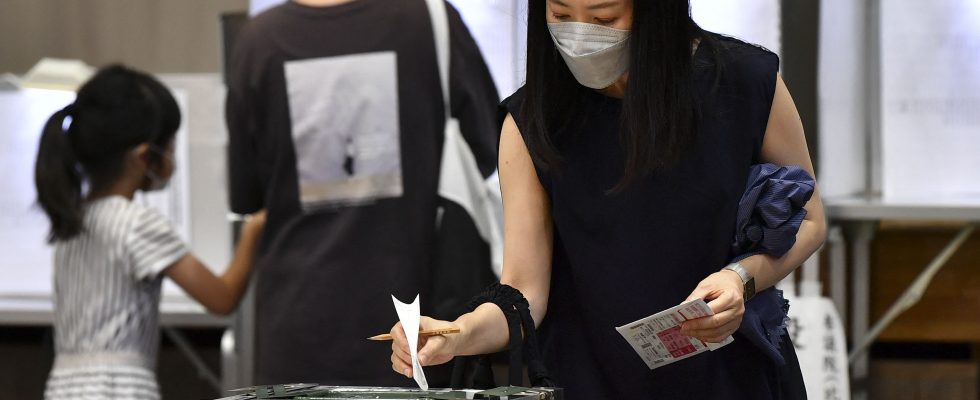At first glance, the case seemed trivial. It was for the mayor of Kumamoto, a city located on the island of Kyushu, in the south-west of Japan, to update a local ordinance, as is the case every four years. There should be detailed the organization of the administration and the municipal assembly, the responsibilities of each and the typology of the citizens. A commission of experts has proposed adding “persons of foreign nationality” to “residents” and “all those who come to work or go to school in Kumamoto City”. The city councilor, Kazufumi Onishi, had accepted the proposal, which was made public last December. The addition did not grant “any additional rights or duties to foreign nationals”, specified the town hall. For Kazufumi Onishi, it was about making foreign residents aware of their belonging to the community and encouraging them to get involved in order to revitalize it. A laudable ambition in a city in full demographic decline. Kumamoto has lost 100,000 inhabitants in ten years and only has 1.7 million citizens. A trend that illustrates Japan’s demographic crisis. In 2022, its population plunged by an unprecedented 800,000 souls. It is now 125.4 million people.
But Onishi’s proposal sparked an outcry. The town hall was bombarded with negative comments. “The review threatens Japan’s national security at a time of great instability,” one protester said. “Only people of Japanese nationality should participate in local life and city activities,” said another. The attacks also targeted a passage in the proposal that mentioned the city’s wish to “promote a multicultural society”. Accused of “maneuvering quietly” to grant the right to vote to foreigners, the mayor finally had to give up on July 26.
Three million foreigners in Japan
Behind these criticisms lies the fear of granting the right to vote to foreigners, a particularly sensitive issue in Japan, where the foreign population now exceeds three million. While they were only 2 million ten years ago, the increase should continue. The archipelago multiplies the texts facilitating the arrival of foreign workers to compensate for the shortage of labor observed in all sectors of the economy, starting with industry, construction and the hotel industry.
However, many of them settle down and found families. Hence the question of the right to vote. In 1984, the government amended the nationality law to grant it to children born to a couple in which one parent is Japanese. Since the 1990s, some 40 municipalities have allowed permanent resident visa holders to vote in local referendums. In 2009, Prime Minister Yukio Hatoyama, of the Democratic Party (current opposition), wanted to go further by granting the right to vote nationwide. He considered it necessary to open up a Japan “too closed in on itself”. The proposal had unleashed opposition, especially from the powerful far right, which saw it as a “threat to the integrity of the state”. Hatoyama had to give up.
The debate was revived in 2021, when Reiko Matsushita, the mayor of Musashino, a city on the outskirts of Tokyo, proposed giving the right to vote to foreigners for local referendums, without condition of status. They just had to live in the city for more than three months. “There is no reason to make a distinction between residents because of their citizenship,” said the city councilor at the time. Again, the opposition was violent. “It’s the door open to entryism from China”, thundered on Twitter Masahisa Sato, parliamentarian of the Liberal Democratic Party (PLD, in power), waving the threat of seeing foreigners acquire the right to vote in elections. and “taking control of the administration and Parliament”. Xenophobic groups such as anti-Korean activist Makoto Sakurai’s “Japan First” party held rallies in front of Musashino town hall to protest their opposition. And again, the idea was abandoned.
